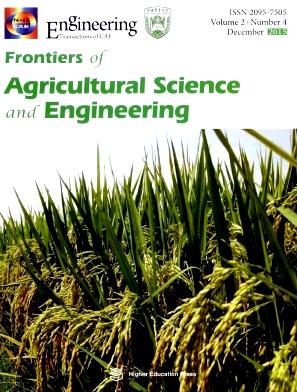欧洲农业畜牧业系统的重新整合:综述
IF 2.8
4区 农林科学
Q1 AGRONOMY
引用次数: 22
摘要
作物和牲畜系统的持续专业化为农民提供了社会经济效益,但与混合农业系统相比,环境成本的外部化程度更高。作物和畜牧业系统的更好整合为重新平衡这两个系统的经济和环境权衡提供了巨大的潜力。这项研究的目的是分析农场结构的变化,审查和评估重新融入专业集约作物和牲畜系统的潜力,特别强调确定重新融入的共同利益和障碍。从历史上看,动物对农业系统中的营养物质循环至关重要,但随着合成肥料的出现,这一点变得不那么重要了。尽管混合农场系统在经济上具有吸引力,但规模效益与社会经济因素相结合,导致了农场和区域专业化,对环境产生了负面影响。因此,需要重新融入社会,以减少农场、区域和国家各级的营养过剩,并改善集约种植系统的土壤质量。重返社会为扩大作物轮作提供了切实可行且具有成本效益的选择,并促进了有机投入和相关效益的使用,减少了对合成肥料、杀生物剂和粪肥加工成本的依赖。循环农业超越了粪肥管理,需要适应粮食生产和消费模式,使当地的生产能力与粮食需求相匹配。因此,可以减少饲料运输、温室气体排放、营养过剩和营养对环境的损失。结论是,将专业农场重新纳入一个地区可以为农民带来好处,但也可能导致土地利用的进一步集约化。粮食系统背景下的新方法提供了重返社会的替代方案,但需要强有力的政策激励措施,为农民、环境和更广泛的社区带来明确、切实和持久的好处。本文章由计算机程序翻译,如有差异,请以英文原文为准。
REINTEGRATION OF CROP-LIVESTOCK SYSTEMS IN EUROPE: AN OVERVIEW
Ongoing specialization of crop and livestock systems provides socioeconomic benefits to the farmer but has led to greater externalization of environmental costs when compared to mixed farming systems. Better integration of crop and livestock systems offers great potential to rebalance the economic and environmental trade-offs in both systems. The aims of this study were to analyze changes in farm structure and review and evaluate the potential for reintegrating specialized intensive crop and livestock systems, with specific emphasis on identifying the co-benefits and barriers to reintegration. Historically, animals were essential to recycle nutrients in the farming system but this became less important with the availability of synthetic fertilisers. Although mixed farm systems can be economically attractive, benefits of scale combined with socio-economic factors have resulted in on-farm and regional specialization with negative environmental impacts. Reintegration is therefore needed to reduce nutrient surpluses at farm, regional and national levels, and to improve soil quality in intensive cropping systems. Reintegration offers practical and cost-effective options to widen crop rotations and promotes the use of organic inputs and associated benefits, reducing dependency on synthetic fertilisers, biocides and manure processing costs. Circular agriculture goes beyond manure management and requires adaptation of both food production and consumption patterns, matching local capacity to produce with food demand. Consequently, feed transport, greenhouse gas emissions, nutrient surpluses and nutrient losses to the environment can be reduced. It is concluded that reintegration of specialized farms within a region can provide benefits to farmers but may also lead to further intensification of land use. New approaches within a food system context offer alternatives for reintegration, but require strong policy incentives which show clear, tangible and lasting benefits for farmers, the environment and the wider community.
求助全文
通过发布文献求助,成功后即可免费获取论文全文。
去求助
来源期刊
CiteScore
5.10
自引率
2.70%
发文量
33
期刊介绍:
Frontiers of Agricultural Science and Engineering (FASE) is an international journal for research on agricultural science and engineering. The journal’s aim is to report advanced and innovative scientific proceedings in agricultural field including Crop Science, Agricultural Biotechnology, Horticulture, Plant Protection, Agricultural Engineering, Forestry Engineering, Agricultural Resources, Animal Husbandry and Veterinary Medicine, Applied Ecology, Forestry and Fisheries. FASE is committed to provide a high level scientific and professional forum for researchers worldwide to publish their original findings and to utilize these novel findings to benefit the society.

 求助内容:
求助内容: 应助结果提醒方式:
应助结果提醒方式:


